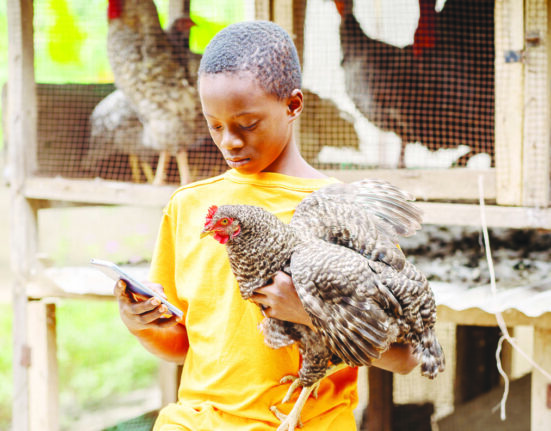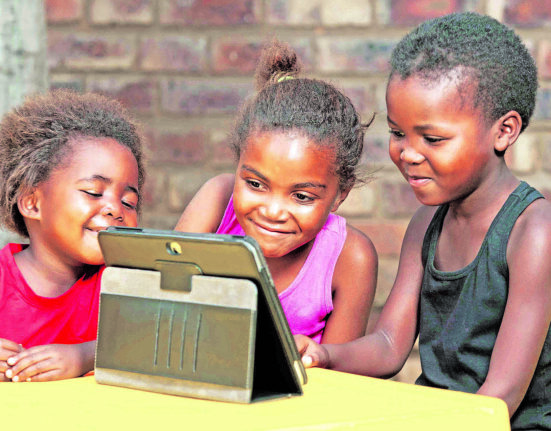(This article was first published in the New Vision on December 21, 2022)
Parents and schools react in various ways to the news of teenagers engaging in sexual relationships. Several of them punish these teenagers, but that is not always the solution. Shibba Nkwanzi looks at how parents can protect teenagers from the dangers of sexual relationships this holiday.
Faith Nalubega (not her real name) was 17 years old when her parents found out she had a boyfriend. The news, which was relayed to them by a teacher at a school where Nalubega studied, came as a shock.
Even more disturbing was the fact that her boyfriend was also a student at the same school located in Salama, a Kampala suburb. So, Nalubega’s father immediately went to this school and ordered his daughter, who was in Senior Five, to pack up her personal belongings.
He drove her back home where he beat her up and later enrolled her at another school. He warned Nalubega against speaking with boys again.
This is a typical response of many parents who find out their children are sexually active, especially if they are still in school. But it is not always the solution. Other parents respond by reducing privileges to their children while others threaten to stop taking care of them or even throw them out of their homes.
On the other hand, schools respond by expelling and subjecting students, thought to be involved in sexual relationships, to corporal punishment. But what is the appropriate way of protecting sexually active teenagers from the dangers of sexual relationships?


Sober Conversations
Ivan Kakinda, a counselling psychologist at Kyambogo University, encourages parents to have conversations with such children.
“Sit with your child and explain your beliefs, values and expectations regarding sexual relationships,
Kakinda says: “It can be a simple conversation revolving around family values and how they relate to choices in life.”
He adds that it is also important that you do not overreact upon learning your child is sexually active.
Seeking support from your spouse as you process this information could help you respond in a useful and sober manner, according to Kakinda.
“Your child may get detached from you if you do not handle these issues soberly because adolescence is a crazy stage. It can make or break someone, but it is also a learning stage,” he adds. “But a sober approach can allow your child to open up about relationships,”
A study published in the Journal of Tropical Medicine and International Health in 2020 shows that poor communication between children and parents is among the factors that influence sexual behaviours among teenagers.
Barking Unhelpful
Edward Kanoonya, a teacher at Kololo Senior Secondary School, concurs with Kakinda. He says schools and parents need to be on speaking terms with their children.
Kanoonya notes that barking at a child because you have found out they are engaged in a sexual relationship is unhelpful.
“Share your concerns with your children about sexual relationships. Let them share their feelings and guide them accordingly,” he says.
“Avoid shouting matches with them, especially if you realise they are getting into relationships earlier than you wished. A child will not understand your concerns if you are tough,” he says.
Schools should not punish students after discovering they are involved in sexual relationships as this does not offer solutions, according to Kanoonya.
“Beating is old-fashioned. We need to talk with these children instead of punishing them because this is more effective than punishment,” he adds.
“We need to tell them the value of delaying sexual relationships and that it is for their benefit,” Kanoonya adds.
Even if you do not get them to delay sexual relationships, the messages you will have shared with them during conversations may be helpful, says Oliver Kwizera, a parent in Nansana Municipality, Wakiso district.
“Sometimes it is just unrealistic to think you are going to stop your child from having a sexual relationship,” she explains.
“In this case, you just need to educate them about sex and how to avoid the risks involved, such as unwanted pregnancies and how they can protect themselves,” Kwizera adds.
A study published in the US-based Plos One Journal in 2017 shows that the mean age for the first sexual activity for over 600 Ugandan teenagers who participated in the survey was 16 years. But other children have their first sexual encounters at nine years and younger, the study says.
If you feel uncomfortable talking about sexual relationships with your child, Kwizera recommends that you engage their older siblings or any other relative who is competent to engage in a meaningful dialogue with them.
“They may open up and take the advice,” she adds. “Let them know that while the primary concern for anyone engaged in a sexual relationship might be pregnancy and sexually transmitted diseases, they could also get trauma and depression, especially if their partners are much older than them.”
Carol Kobusingye, a mother of six, says the conversations with your sexually active and non-sexually active children should focus on the value of delaying sexual relationships. “Let them know when you think is the best time to engage in sexual relationships. Pray for them to make good decisions. They are going through a tough period and need parental help,” Kobusingye says.

Counsellors
Instead of expelling and subjecting teenagers to corporal punishments in schools over engaging in sexual relationships, Kakinda encourages these educational institutions to hire counsellors.
“You need to understand why teenagers are getting involved in sex, listen to them and understand their reasons so you offer help,” he adds. “This is better than beating and name calling, which some schools engage in.”
To get teenagers to properly appreciate that it is inappropriate to engage in sexual relationships, Kakinda says they could be challenged and constantly reminded of the associated dangers and how these affairs could hinder them from achieving their goals.
“Use that opportunity to educate your children about the dangers of early sex, such as getting sexually transmitted diseases and pregnancies. Your children may pretend to know yet they are ignorant,” he adds.
Maria Gorretti Nampeebwa, the headteacher of City High Secondary School, agrees. “We need to talk with teenagers about HIV/AIDS and the dangers of early pregnancies,” she says.
“We usually sit down with teenagers who are sexually active at school and advise them to focus on their studies and tell them they will enjoy relationships later,” Nampeebwa adds.
The headteacher explains that schools and parents need to bear in mind that teenagers are experiencing a critical phase in their lives and need to be guided through it appropriately.

HIV/AIDS
A study published in the Journal of Health Education Research in 1999 shows that the early onset of sexual activity was among the factors responsible for the escalation of HIV/ AIDS in the 1980s. Over 30 years later, the story remains almost the same.
Statistics from the Uganda Aids Commission show that 15,000 of last year’s 54,000 infections were among adolescent girls and young women aged between 15 and 24 years.
A third of these adolescent girls and young women were infected by male counterparts in the same age group as them. While many female teenagers continue to get infected by partners, who are way older than them, you could also get infected by your fellow teenager.
Live By Example
It is one thing to desire to inculcate certain values in your children and another to live by the same principles. And it is much harder to impart to your children the values you do not exhibit.
To avoid this, Kanoonya says parents need to live by example.
“You should have the good values that you are trying to inculcate in your children. If they see those values in you, you will have the moral authority to inculcate the same in them,” he adds.
Teenagers speak out
According to a study published in the Journal of Tropical Medicine and International Health in 2020, initiation of sexual intercourse at an early age can result in a number of risks, including having a higher number of lifetime sexual partners, increased risk of contracting human papillomavirus infection, teenage pregnancies and death from abortion or birth-related complications.
The study, which was conducted in Mayuge and Iganga districts in eastern Uganda also shows that early sex is responsible for higher rates of school dropouts with grave social and economic consequences to the family.
Led by Justine Nnakate, a senior lecturer at the Makerere University School of Public Health, the study says taboos, parental influences, peer pressure, a lack of information on sexual and reproductive health and technological advances, including social media, are among the factors that lead teenagers into sex.
For instance, some teenagers who participated in the study said sending or receiving sexually explicit text messages and having people making sexual advances at them encouraged them to engage in sexual intercourse.
This explains why you probably need to know the people talking to your child during this long holiday. Other respondents said watching sexually explicit films or images increased the risk of engaging in sex – the reason you need to take interest in the content your child is consuming on television and mobile phones.
The girls who had fallen pregnant before the study and the boys who were responsible for the pregnancies said they did not imagine their engagement in sexual activity would result in (pregnancies).
This underscores the teenagers’ limited knowledge about the dangers of sexual activities. Some of these teens had more than one sexual partner and did not use condoms, resulting in pregnancies and abortions, according to the study.
On the other hand, for Faith Nalubega, although she was beaten, she remained sexually active. She says that she got another boyfriend at her new school, but ensured that her teachers and parents never found out.
“I hid this information from them,” she adds. In addition, Nalubega says she grew detached from her parents, blocking any opportunities for discussions between them about her sexual relationships. This shows that your sexually active teenagers could learn better about the dangers of sexual relationships from your conversations with them than punishment.
Know Your Child’s Friends
The other way to protect sexually active teenagers, according to Maria Gorretti Nampeebwa, the headteacher of City High Secondary School, is keeping them busy with, for instance, household chores and academic activities. If you do not have a large house to accommodate several family members, Nampeebwa notes that holidays are not the best time to encourage distant relatives to visit you as some teenagers have been abused by their relatives. “Let them stay at their homes. Tell them you do not have enough space to accommodate them,” she adds.
A study published in the US-based Plos One Journal in 2017 confirms that some Ugandan teenagers are forced into sex by strangers and relatives. Ivan Kakinda, a counselling psychologist at Kyambogo University says parents need to also get interested in knowing the friends of their children and the people they spend most of the time with during the holidays.
This, Kakinda adds, could form the basis for understanding the kind of people your child is likely to get into a relationship with or influence them into getting engaged in sexual relationships.
A sober approach to handling teenagers, he says, does not mean there should be no rules in a family. “There should be clear rules and children should be held accountable if they break these rules,” Kakinda says.









Leave feedback about this